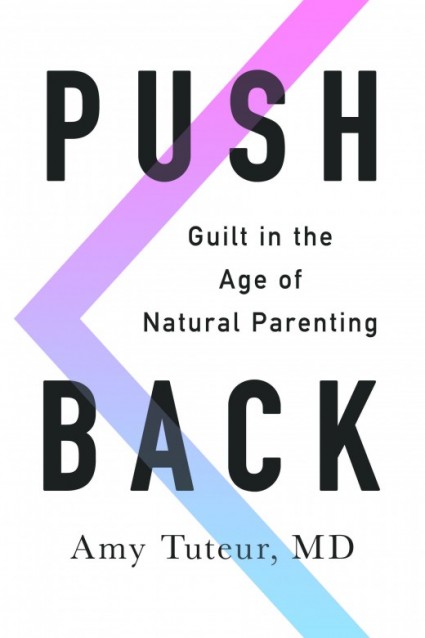Talk about having a tin ear.
On the same day that Courtney Jung’s book Lactivism was published, taking the breastfeeding industry to task for grossly exaggerating the benefits of breastfeeding and the fear mongering used to promote it, The United States Committee on Breastfeeding rushes to prove her point with a new campaign built around infringement of the hashtag #TheHungerGames.
The histrionics are par for the course and their growing shrillness reflects lactivists’ fears that their clumsy attempts to manipulate women into fighting with each other are being revealed for what they are: attempts to shame women into breastfeeding.
[pullquote align=”right” color=”#b57e5f”]Shaming women who don’t breastfeed exclusively is what they do and they are going to fight fiercely against any attempt to hold them accountable for it.[/pullquote]
Give them an A+ for hypocrisy!
Recent media and social media conversations around breastfeeding—including campaigns launched by formula companies calling to “End the Mommy Wars” — reduce the complexity of parenting in our society to a series of singular, isolated decisions.
That’s right. The folks who think there is only OMG, OMG ONLY ONE BEST WAY to feed a baby, are condemning others for reducing the complexity of parenting to an isolated decision!
Talk about chutzpah. But wait! There’s more:
This thought pattern perpetuates stereotypes that breastfeeding mothers and advocates zealously judge formula feeding mothers. But when we focus only on individual moms’ choices and avoid deeper dialogue for fear of perpetuating “wars,” this deters honest conversations about why families feel so much pressure around their parenting decisions.
Breastfeeding advocates DO judge formula feeding mothers. It’s about 20 years too late to deny it. And just in case you thought otherwise, the USCB mobilized the use of the hashtag #TheHungerGames to drive the point home that shaming women is a major marketing tactic.
I left a comment on their Facebook page:
You should stop using this hashtag immediately. Bottle fed babies don’t go hungry and it is UGLY to imply that they do.
They responded:
We are sorry you think we are implying that, that is not the intention. Please take the time to learn about the campaign and take action to support mothers www.usbreastfeeding.org/hunger-games
I will not let them off the hook:
It’s obviously the intention. What other “hunger” could you possibly be referring to?
It is this kind of shaming that makes it clear that lactivist campaigns are not about science, but about some women feeling superior to other women.
Not surprisingly, they couldn’t think of an answer.
The hashtag campaign’s attempt at melodrama is laughable:
The Hunger Games: Mockingjay, Part 2 movie opened in cinemas on Friday, November 20, featuring a dystopian world in which teenagers and young adults are randomly chosen and forced to participate in a televised death match. Sadly, many families can attest that this is a powerful metaphor for the parenting experience in the United States.
Families do their best every day with the information and support available to them. Parenting shouldn’t feel like The Hunger Games, where only the privileged survive. We believe that every family should have the opportunity to make informed choices and benefit from a “landscape of support” for those choices. Spreading fear of dialogue is not the solution our nation’s families need to make this a reality.
A dystopian world? You mean the world where some women think it is their business how other women feed their babies?
Fear of dialogue? The only people who fear dialogue are lactivists; they know that truth is not on their side and they know they have spent years shaming women who don’t choose exclusive breastfeeding.
Their tactics are being exposed, they are being called to account and they don’t like it one little bit.
It started with the Similac video The Sisterhood of Motherhood, and it has ratcheted up a notch with the publication of Lactivism and the public discussion that it has engendered.
I have bad news for them. It’s going to get worse. My book, PUSH BACK: Guilt in the Age of Natural Parenting goes beyond Jung’s book (which revealed that lactivism is an industry that exaggerates the benefits of breastfeeding in order to scare women and profit from their fear) is set for publication this spring.
I just submitted the manuscript for final editing: 412 pages, 90,000 words, 285 footnotes.
It explains not merely the science (or lack of it) behind lactivism as well as natural childbirth and attachment parenting, and not merely the billion dollar businesses that they represent, but it reveals that they are all linked by one overriding imperative: to relegate women to the home. The book is a full throated exhortation to push back against the guilt that is heaped on new mothers in an attempt to profit from them and to divert them into fighting with each other instead of taking their place in the wider world.
The Push Back chapters on lactivism can be summed up in one sentence:
The moralization of breastfeeding has paralleled the monetization of breastfeeding.
Case in point, nearly the entire Board of USBC is made up of lactation consultants, the people who profit by promoting breastfeeding.
Lactivists deployed guilt to make money and now they are horrified to find that the weapon they used to get women to mirror their own feeding choices back to them is being taken away. Shaming women who don’t breastfeed exclusively is what they do and they are going to fight fiercely against any attempt to hold them accountable for it.




